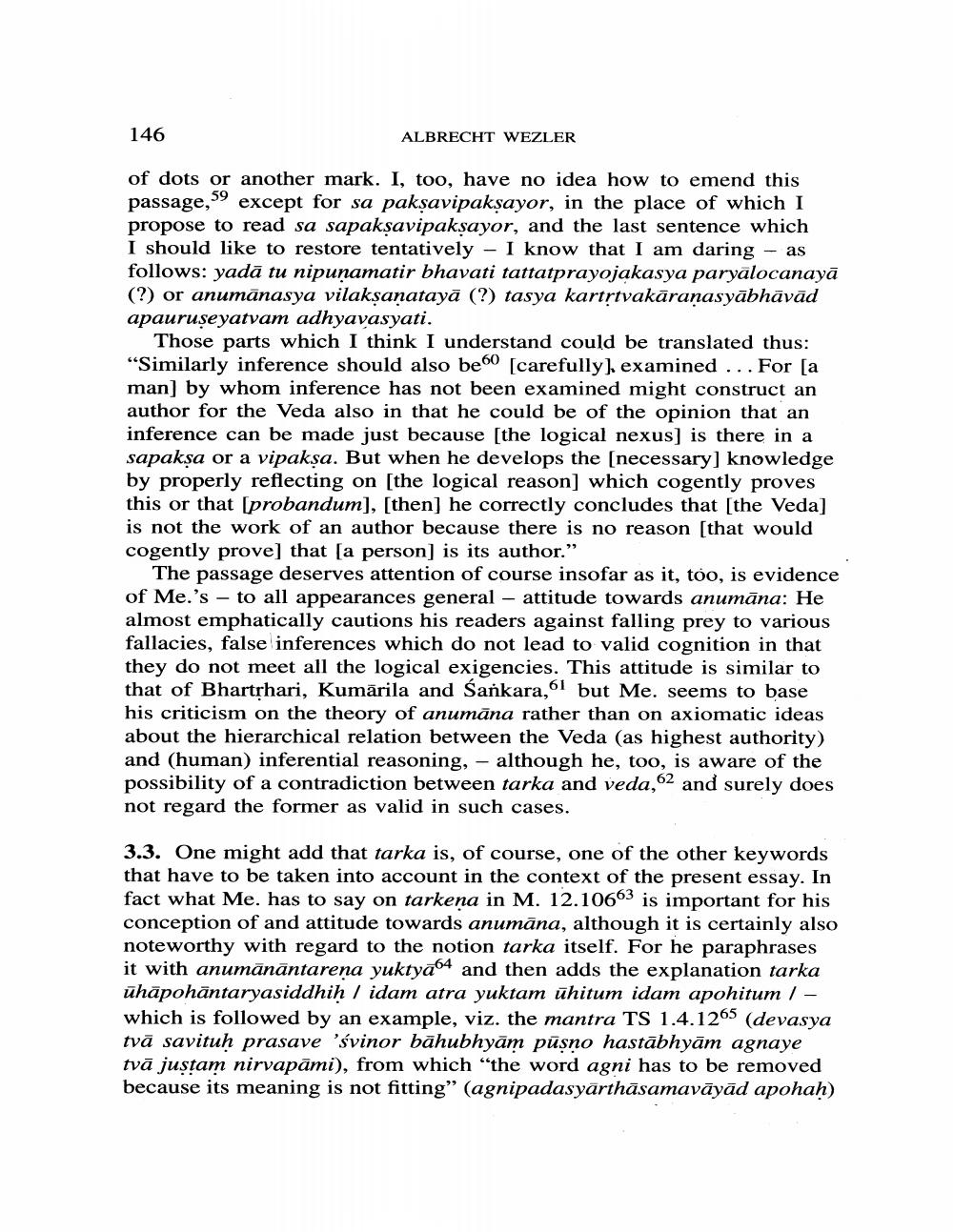Book Title: Medhatithi On Samanyato Drstam Author(s): Albrecht Wezler Publisher: Albrecht Wezler View full book textPage 8
________________ 146 ALBRECHT WEZLER of dots or another mark. I, too, have no idea how to emend this passage, 59 except for sa paksavipaksayor, in the place of which I propose to read sa sapaksavipaksayor, and the last sentence which I should like to restore tentatively – I know that I am daring - as follows: yadā tu nipunamatir bhavati tattatprayojakasya paryalocanayā (?) or anumānasya vilakṣaṇatayā (?) tasya kartstvakāraṇasyābhāvād apaurușeyatvam adhyavasyati. Those parts which I think I understand could be translated thus: "Similarly inference should also be carefully). examined ... For [a man] by whom inference has not been examined might construct an author for the Veda also in that he could be of the opinion that an inference can be made just because [the logical nexus] is there in a sapakṣa or a vipaksa. But when he develops the [necessary] knowledge by properly reflecting on [the logical reason] which cogently proves this or that [probandum], [then) he correctly concludes that [the Veda] is not the work of an author because there is no reason [that would cogently prove] that [a person] is its author." The passage deserves attention of course insofar as it, too, is evidence of Me.'s – to all appearances general - attitude towards anumāna: He almost emphatically cautions his readers against falling prey to various fallacies, false inferences which do not lead to valid cognition in that they do not meet all the logical exigencies. This attitude is similar to that of Bhartrhari, Kumārila and Sankara, 61 but Me. seems to base his criticism on the theory of anumāna rather than on axiomatic ideas about the hierarchical relation between the Veda (as highest authority) and (human) inferential reasoning, - although he, too, is aware of the possibility of a contradiction between tarka and veda, 62 and surely does not regard the former as valid in such cases. 3.3. One might add that tarka is, of course, one of the other keywords that have to be taken into account in the context of the present essay. In fact what Me. has to say on tarkena in M. 12.10663 is important for his conception of and attitude towards anumāna, although it is certainly also noteworthy with regard to the notion tarka itself. For he paraphrases it with anumānāntarena yuktyā64 and then adds the explanation tarka ūhāpohāntaryasiddhiḥ / idam atra yuktam ūhitum idam apohitum / - which is followed by an example, viz. the mantra TS 1.4.1265 (devasya tvā savituḥ prasave 'svinor bāhubhyām pūsno hastābhyām agnaye tvā justam nirvapāmi), from which the word agni has to be removed because its meaning is not fitting" (agnipadasyärthāsamavāyād apohah)Page Navigation
1 ... 6 7 8 9 10 11 12 13 14 15 16 17 18 19
